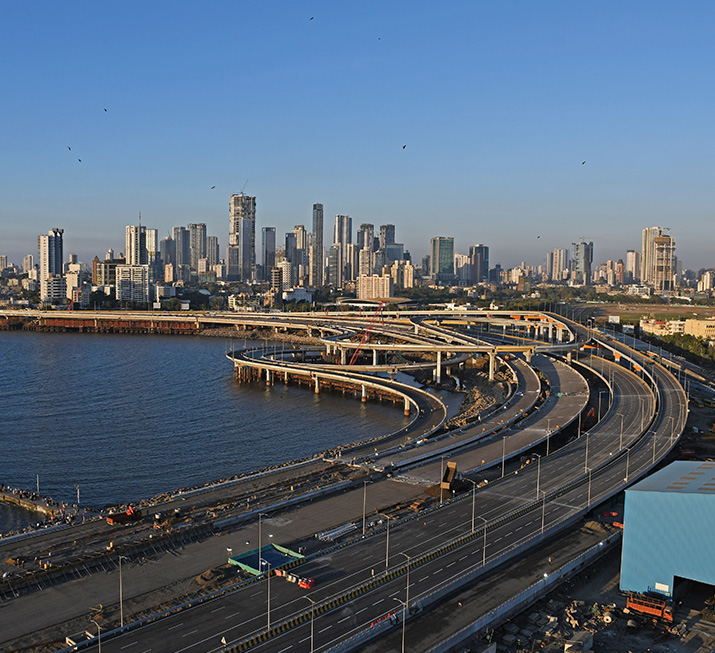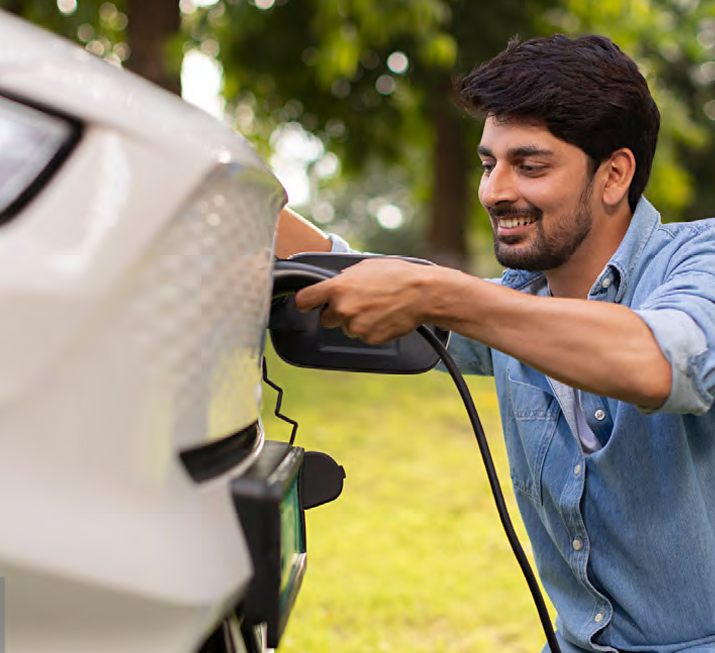Schaeffler India is at the forefront of transforming the mobility sector by delivering cutting-edge solutions to original equipment manufacturers (OEMs). As pioneers in motion technology, we design state-of-the-art products that not only meet evolving customer demands but also proactively address the challenges of climate change.
Rapid changes within the country and transformation of the automotive and industrial sectors continues to impact our operating landscape. To effectively respond to market demand, we are consistently aligning our efforts with an evolving external environment.



India has emerged as the fastest growing major economy in the world. With growth projections by RBI of 6.6% and 6.7% for FY25 and FY26 respectively, the country is expected to benefit from its changing demographic profile. A higher proportion of working age people and greater participation of women in the workforce has led to the rise of an aspirational middle class.
Moreover, increasing urbanisation, characterised by steady migration of people from small towns and villages to larger cities has resulted in a growing demand for safe and efficient mobility solutions. This has also increased the demand for automobiles. Despite experiencing a slowdown in 2024, the Indian automotive market continues to hold promising long-term growth prospects. Furthermore, the used car sectortoo is projected to expand at an impressive compounded annual growth rate (CAGR) of approximately 15% from 2024 to 2029, underscoring a dynamic and resilient future for the industry.
To counter climate change, the government has set in action a decarbonisation roadmap. It prioritises the generation of renewable energy and promotion of green mobility solutions, especially the adoption and manufacturing of electric vehicles under FAME India scheme. India has set an ambitious target of 500 GW renewable energy production by 2030 and in 2024, the country achieved a remarkable feat of crossing 200 GW of renewable energy generation. These initiatives are expected to add impetus to EV production and greater adoption of renewable sources of energy across sectors.
The domestic automotive industry continues to undertake efforts to reduce import dependence and align itself with the government’s ‘Make in India’ vision. These efforts are anticipated to bolster localisation initiatives and improve automobile manufacturing infrastructure within the country. The government is also providing impetus to manufacturing in India through focused Production Linked Incentive Schemes.
Schaeffler India’s response
Schaeffler India is dedicated to enhancing localisation initiatives by harnessing
India’s skilled workforce and favourable policy landscape. We have successfully
developed an innovative planetary gear system locally, showcasing our
commitment. With our deep expertise in power transmission, e-mobility, and
renewable energy, we are poised to lead the transition to a low-carbon future,
positioning ourselves as key players in this transformative journey.
The co-existence of internal combustion engines (ICE), electric vehicles (EVs) and hybrids in India represents a pivotal shift towards sustainable mobility, driven by environmental concerns and a strong push from the government for adopting cleaner transportation solutions. As the country grapples with pollution and energy challenges, both EVs and hybrids are gaining traction for their eco-friendly advantages. This enriches the automotive landscape by offering consumers diverse choices to suit their needs and preferences, while also advancing India’s goals for sustainable development. As technology advances and infrastructure improves, the synergy between EVs and hybrids will play a critical role in achieving a greener future for India’s transportation sector.
There has been a noticeable shift towards prioritising safety within the Indian automotive landscape. Bharat NCAP regulations are expected to make safety of cars in India an utmost priority. It is set to transform the automotive industry with the introduction of advanced AI-driven safety systems and other technologically advanced products. Manufacturers are prioritising these features as consumers seem to realise the importance of safety features and it continues to play an important role in making purchase decisions.
Reduction in a vehicle’s weight can result in considerable fuel economy improvement, as lighter vehicles require lesser energy to accelerate and maintain speed and therefore, consume less energy. Along with the environmental benefits, lightweight vehicles also enhance the vehicle’s driving dynamics and safety aspect.
The rapid acceleration of technological innovation, particularly IoT, AI and digital transformation is enabling smart manufacturing, predictive maintenance and advanced driver assistance systems. These technologies are enhancing production efficiency, quality control and enabling safer, more connected and sustainable automotive solutions. These technological advancements are not only boosting economic growth but also positioning India as a key player in the global tech landscape.
Schaeffler India’s response
Schaeffler India is strategically positioned to align its offerings with the dynamic
changes within India’s automotive and industrial landscape. By focusing on
investments in research and development, we are committed to drive innovation
tailored to the unique demands of the Indian market. With the development of
smarter solutions, we aim to enhance product performance, efficiency and
sustainability, leading the way in both industrial and automotive sectors.
As digital transformation accelerates across industries, Schaeffler India integrates
smart technologies into its products and processes. This includes the adoption of
Industry 4.0 practices, IoT solutions and advanced analytics, which enhance
operational efficiency and customer value.
It continues to strengthen our position in the Indian market, and empowers us to
capitalise on emerging opportunities.
